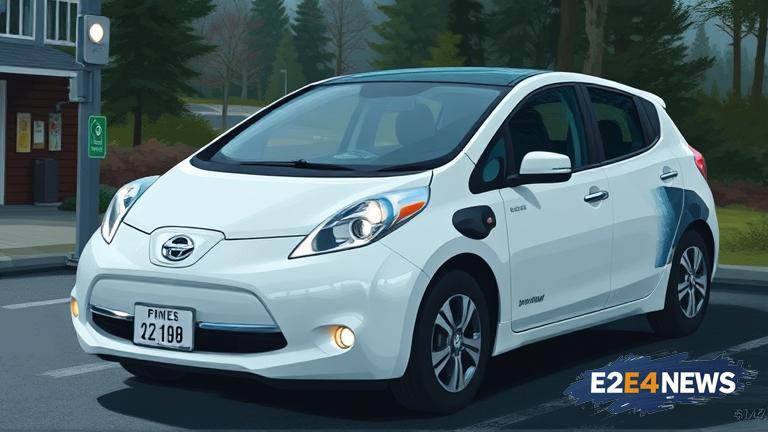A poll conducted by the Angus Reid Institute has found that a significant number of British Columbians are opposed to the province’s plan to mandate the sale of electric vehicles. The poll, which surveyed over 800 residents, revealed that 53% of respondents are against the mandate, while 41% are in favor. The opposition to the mandate is largely driven by concerns over affordability, with many respondents citing the high cost of electric vehicles as a major barrier to adoption. Others expressed concerns over the accessibility of charging infrastructure, particularly in rural areas. The poll also found that there is a significant divide between urban and rural residents, with those living in urban areas more likely to support the mandate. The BC government has set a goal of having all new car sales be electric by 2040, but the poll suggests that this goal may be ambitious. The opposition to the mandate is not limited to individual residents, as some businesses and industries have also expressed concerns over the potential impact on their operations. The automotive industry, in particular, has raised concerns over the cost of transitioning to electric vehicles and the potential impact on jobs. Despite the opposition, there are also many residents who support the mandate and see it as a necessary step towards reducing greenhouse gas emissions. The BC government has argued that the mandate is necessary to meet its climate change goals and to reduce air pollution. The government has also announced plans to invest in charging infrastructure and to offer incentives to encourage the adoption of electric vehicles. However, the poll suggests that more needs to be done to address the concerns of residents and to make electric vehicles more accessible and affordable. The debate over the electric vehicle mandate is not unique to British Columbia, as other provinces and countries are also grappling with the issue. The federal government has set a goal of having at least 50% of new car sales be electric by 2030, but there are concerns over whether this goal is achievable. The poll highlights the need for a more nuanced approach to promoting the adoption of electric vehicles, one that takes into account the concerns and needs of all residents. This could include investing in charging infrastructure, offering incentives, and providing education and support to help residents make the transition to electric vehicles. The BC government has announced plans to review the results of the poll and to consider the concerns of residents. The opposition to the mandate is a reminder that the transition to electric vehicles will not be easy and will require a coordinated effort from government, industry, and residents. The poll also highlights the need for more research and data on the impact of electric vehicles on the environment and on the economy. As the debate over the electric vehicle mandate continues, it is clear that there are many complex issues at play. The BC government will need to carefully consider the concerns of residents and to develop a plan that balances the need to reduce greenhouse gas emissions with the need to make electric vehicles accessible and affordable. The poll is a reminder that the transition to electric vehicles is not just a technical issue, but also a social and economic one. It will require a coordinated effort from all stakeholders to ensure that the benefits of electric vehicles are shared by all. The results of the poll are a wake-up call for the BC government and for the automotive industry, highlighting the need for a more nuanced approach to promoting the adoption of electric vehicles. The debate over the electric vehicle mandate is far from over, and it will be important to continue to monitor the situation and to adjust policies accordingly. The poll is a reminder that the transition to electric vehicles is a complex issue that will require careful planning and coordination. The BC government has a critical role to play in promoting the adoption of electric vehicles, but it must also listen to the concerns of residents and to develop policies that are fair and effective. The opposition to the mandate is a reminder that there are many different perspectives on the issue, and that a one-size-fits-all approach will not work. The BC government must be willing to adapt and to adjust its policies in response to the concerns of residents. The poll is a call to action, highlighting the need for a more coordinated and nuanced approach to promoting the adoption of electric vehicles. The results of the poll are a reminder that the transition to electric vehicles is not just a technical issue, but also a social and economic one. It will require a coordinated effort from all stakeholders to ensure that the benefits of electric vehicles are shared by all.
